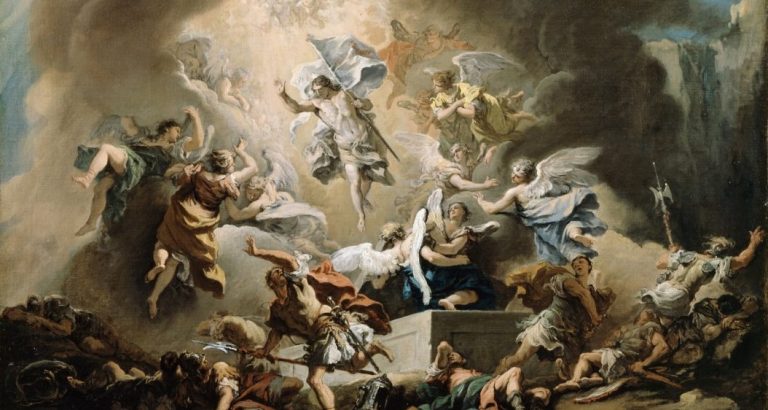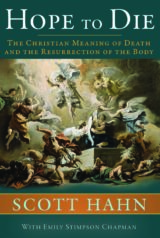By Regis Flaherty
Regis Flaherty is a bestselling author of several books, including Jesus Is the Gift: The Spirituality of Advent & Christmas, which is the fruit of over seven years of preparing others for Advent through talks on its liturgical themes.

Certainly we were all born to die. That’s a true statement, but it only points to a partial reality. For fuller understanding we need to peer into what lies beyond our physical death. Yes, death is the end of physical life as we know it now, but death is also a birth into a greater life. Our physical death is actually a second birth. Let me explain.
From the time that we were conceived, we lived in the confined space of our mother’s womb. After about nine months we were born into a vast new world—our first birth. Yet our life did not begin at physical birth; we had been an individual since conception. Actually, it would be accurate to say that our birth into the physical environment with which we are daily in contact—this world of blue skies, sunshine, solid food—was a death to the life we knew in the womb. At that first birth, life was not ended but changed.
One day we will leave this physical world where, right now, we feel so much at home. Our friends and relatives will proclaim our death, but they could equally say that we have been born into eternal life. We will leave this confining existence on planet Earth for the much more expansive existence of life that is forever. Just as the baby in the womb couldn’t imagine what life would be like outside his mother’s uterus, so we struggle to imagine what life will be like on the other side of the grave.
We can say that this birth at death—the second birth—will also be our final birth. We were made to enjoy life with God. It was the plan of God for Adam and Eve. It is God’s plan for you and me. It is the plan for the last man or woman who will perish at the end of the physical world.
What can we expect in eternal life? The Church tells us that in heaven we will experience “the beatific vision, in which God opens himself in an inexhaustible way to the elect, [which] will be the ever-flowing well-spring of happiness, peace, and mutual communion” (CCC 1045). Not very specific, but perhaps it is the most we can say from the view here in our limited physical reality we have here. Nonetheless, we know that words like grand, awesome, spectacular, and any other superlatives in the English vocabulary fall short in describing the destiny for which we hope: falling not into oblivion but into the arms of God.
The anniversary of the death of a family member or friend is as much a date to celebrate as that day when some doctor spanked us so that we would begin breathing the air in this world. In fact, the feast day of most saints in the Church’s liturgical calendar is the day that they died—left this life with all its struggles and limits—and began their heavenly existence.
The saints often would look to their death with joy and expectation because they longed for closer union with God. Saint Paul said, “We would rather leave the body and go home to the Lord” (2 Cor 5:8, nab). Paul saw death as a friend that would carry him to the Lord.
Saint Francis of Assisi saw death as even more than a friend. He praised God for “sister death.” When Francis was approaching his own death he added the following stanza to his famous prayer, “The Canticle of the Sun”:
Praised be You, my Lord through Sister Death,
from whom no one living can escape.
Woe to those who die in mortal sin!
Blessed are they She finds doing Your Will.
No second death can do them harm.
Every person whom death finds doing God’s will is “blessed.”
You Might Also Like

In Hope to Die: The Christian Meaning of Death and the Resurrection of the Body, Scott Hahn explores the significance of death and burial from a Catholic perspective. The promise of the bodily resurrection brings into focus the need for the dignified care of our bodies at the hour of death. Unpacking both Scripture and Catholic teaching, Hope to Die reminds us that we are destined for glorification on the last day.

